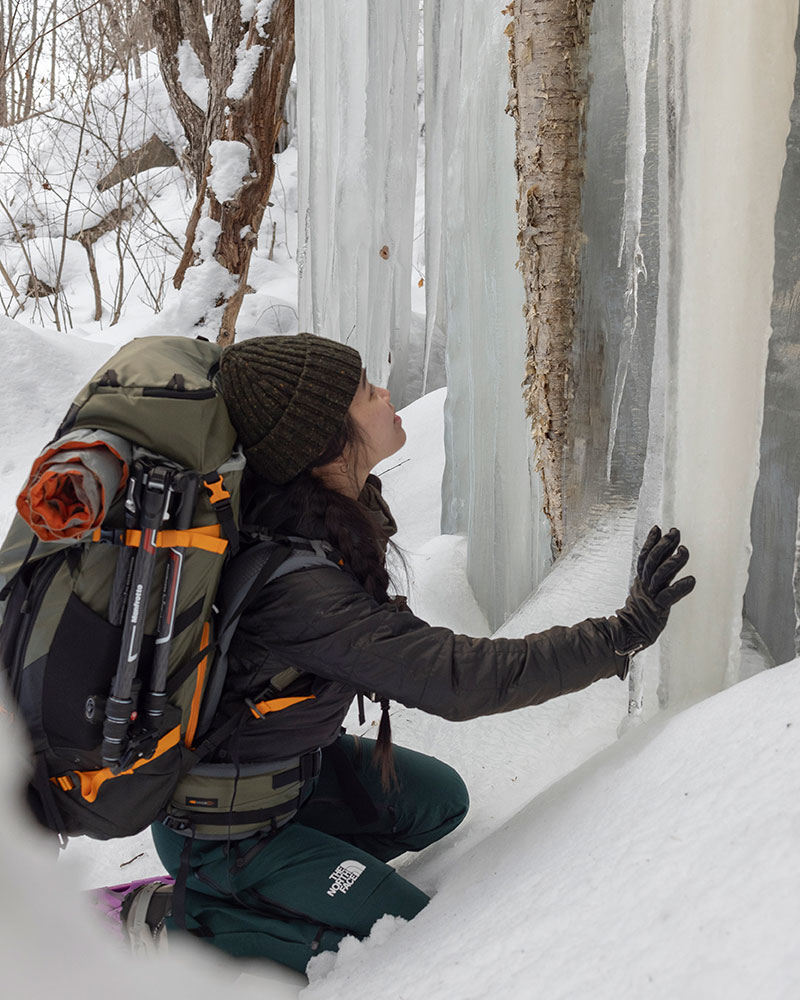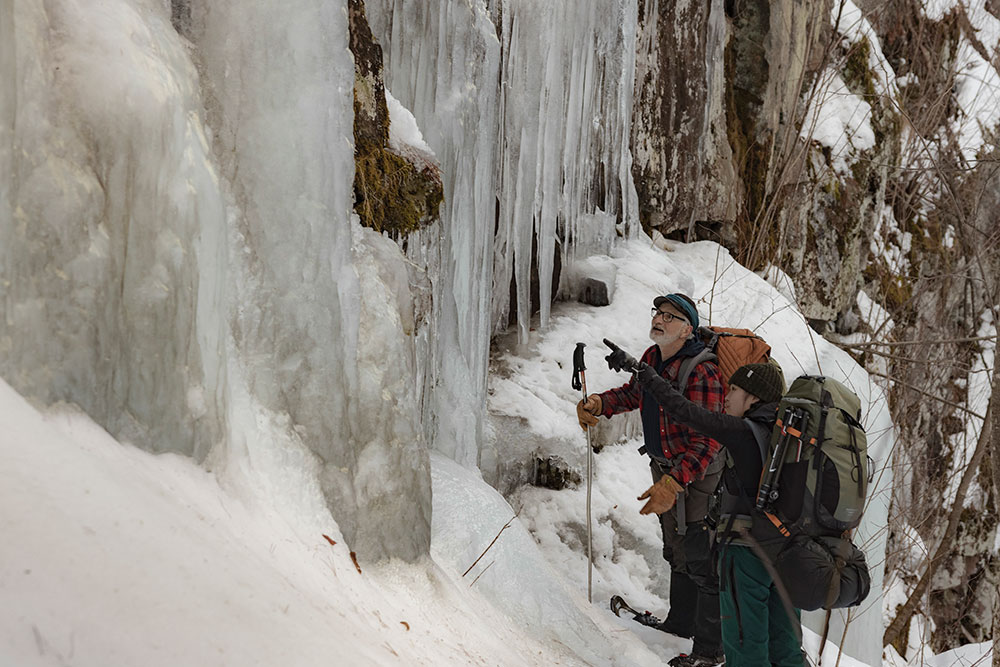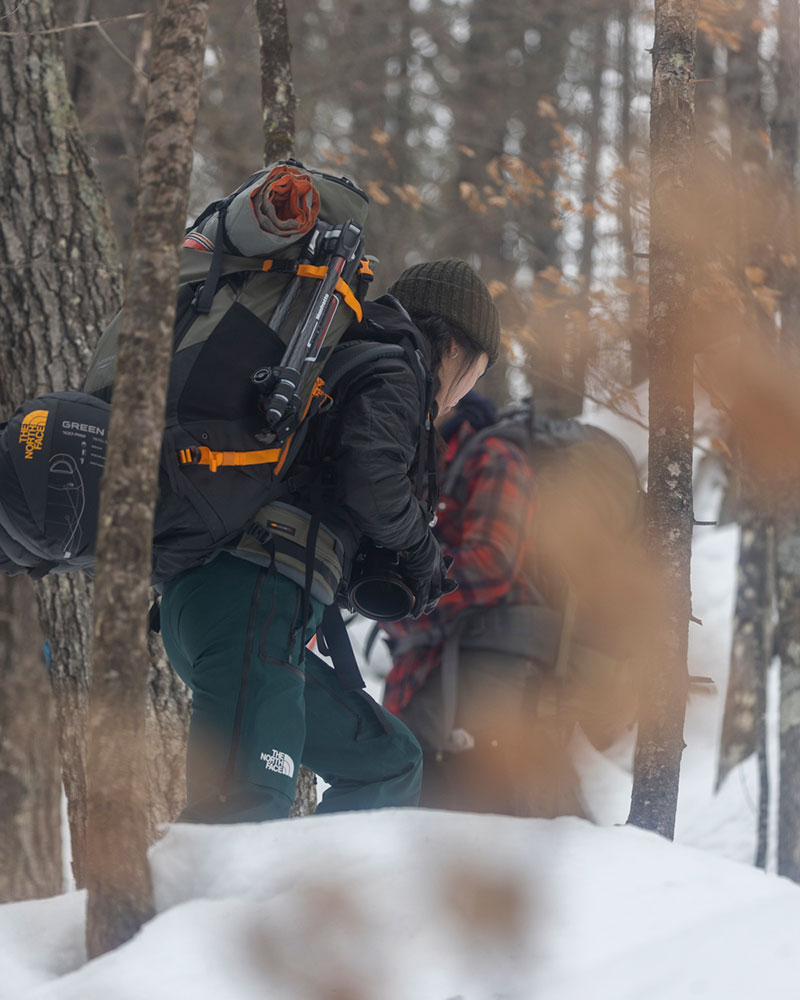TRAVEL ETHICALLY: A GUIDE TO SLOW CONSCIOUS TRAVEL IN OUTAOUAIS
By Béatrice Vu
In today's world, the buzzwords of ethical, sustainable, and conscious tourism are everywhere. But what do they mean? Is it just another passing trend? Travel indeed leaves a carbon footprint, yet it's also one of the most enlightening experiences for raising awareness about our planet and its inhabitants. Confusing concept right?
Also known as responsible or sustainable tourism, it refers to traveling in a manner that minimizes negative impacts on the environment, respects local cultures and communities, and maximizes the benefits to both the environment and local people. It involves making conscious choices to support destinations, businesses, and practices that prioritize sustainability, social justice, and cultural preservation.
The all-blue hues of Chefchaouen makes you feel as in magical world. Further north you’ll find Tangier - the gateway to Europe and home to a striking blend of European and African architecture. In Marrakech, you will find bustling markets and miles of souks to get lost in.
ABOUT THE AUTHOR
My name is Béatrice, I’m half Vietnamese and Thai from Quebec. I gave up the finance world in 2017 to follow my passion for conscious travel and people’s stories, over the next 7 years, I ventured into the world 6 months per year while always coming home in Quebec for the other half.
This led me to complete a Bachelor's in Graphic Design and start my own production company Wild to Balance Studio. I now shift gears between being a branding designer, adventure photographer and filmmaker focusing on travel documentaries and environmental topics. Enough about me, back to the blog!




A GUIDE TO SUSTAINABLE AND ETHICAL CONSCIOUS TRAVEL
In today's digital age, navigating the vast sea of information can be overwhelming, often leaving us unsure of what to trust. A prime example lies in the misleading practices of Thailand's elephant tourism industry. Many unsuspecting tourists are lured into believing they're engaging in ethical activities, only to discover the harsh reality of animal suffering behind the facade.
Terms like "sanctuary" are employed to mask the truth, creating an illusion of natural elephant care through activities like feeding and bathing. However, the reality is far from idyllic, think about it: while you are living your one-time dream, they endure a lifetime of 100 touches per day. A sentence that struck me from the Somboon Legacy Foundation. One of the 11 ethical sanctuaries in Thailand.
To help you identify your next tour, here is a guide:
Support for Local Communities: Understand where your money goes and make sure it goes straight to the local communities. A direct impact on the people.
Distance from the animals: No one should feed or touch the animals, only watching from a distance should be allowed.
Environmental impact: Understand the choices of the organization in energy and water conservation, waste reduction, and use of renewable resources.
Education: transfer knowledge and prioritize a long-lasting impact.


A CASE STUDY IN OUTAOUAIS
During my recent trip to my home province of Quebec, I had the pleasure of meeting Louis Harvey, co-founder of Cooperative Hélianthe, a shining example of sustainable tourism principles in action. Louis not only educates his guests about the ecosystem of the forest but also takes the time to personally guide them through activities, ensuring they forge a deeper connection with nature.
During 3 days, he would be our guide in the Davidson Forest, where we snowshoed about 6km per day to reach our Cri-style tent camp with a wood stove inside. What was most impressive was seeing with our own eyes the numerous tracks in the snow of the white-tailed deer that are abundant in the territory and hearing the coywolves howling at night while we were peacefully in the tent without disturbing any wildlife.




THESE SMALL INITIATIVES ARE SOLUTIONS THAT CAN TRULY CREATE A LONG-TERM POSITIVE IMPACT ON THE PLANET AND ITS PEOPLE
In the realm of travel, our choices carry significant weight, influencing not only our own experiences but also the well-being of the destinations we visit and the communities that call them home. As travelers, it's imperative that we do our research and are aware of where our money goes to practice ethical and sustainable practices, striving to minimize our environmental footprint, respect local cultures, and support the livelihoods of those we encounter on our journeys.
Let us continue to explore the world with empathy, responsibility, and a deep appreciation for the beauty and diversity that surrounds us. Together, we can pave the way for a future where travel serves as a force for good, enriching our lives while preserving as much as we can.

























